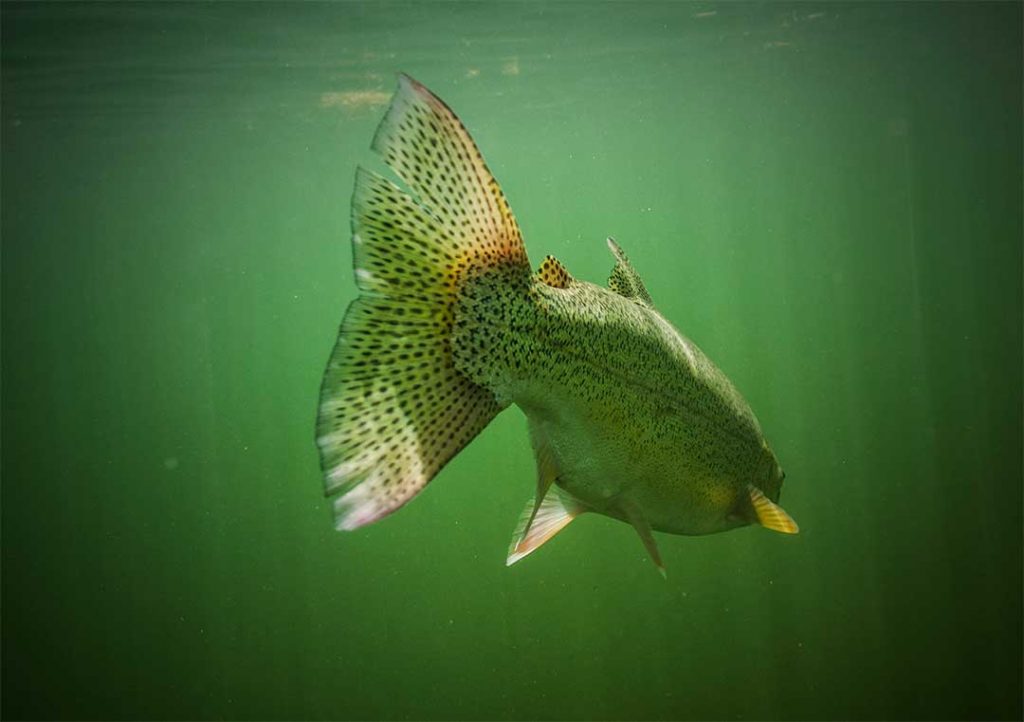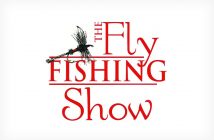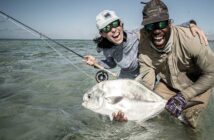
Prediction: Within 10 years, trout will no longer be the predominant species in North American fly-fishing.
By Kirk Deeter
There was a time, not all that long ago, when 75 percent or more of all product SKUs in fly fishing were related to trout. For some companies, it’s still very much the same story.
But we’re seeing serious movement outside of the trout box these days, both in terms of product and practice. The smartest rod companies are developing more technical models with broader ranges of species-specific applications. Travel companies that point anglers toward saltwater have seen an incredible boom lately. Smart guides—particularly those who want to work in the hot summer months—are figuring out other things to chase, or at least other ways to chase trout in water that isn’t too warm to ethically fish. And frankly, people are rediscovering how fun and interesting fish like smallmouth bass can be. To be honest with you, if I had to choose between a day of smallmouth fishing and trout fishing tomorrow, I’d choose smallies. Actually, I’d choose redfish. Well, if I’m being really honest with you, it’d be tarpon… You get the point, and I’m the editor-in-chief of TROUT magazine.
Granted, there have been industry-wide efforts to spread people out and open new doors, particularly regarding warmwater species, for decades. There’s still a strong, somewhat growing cadre of weirdos who like fly fishing for carp. Pike are pretty cool, even if they eat trout like M&Ms in some places. And what’s not to like about fishing saltwater? Yet even with all that, trout have ultimately ruled the day.
But I think those days are numbered for real this time, and there are three key reasons why:
1. A good percentage of fly anglers actually like to cast a fly rod, and think that should be an important part of fishing. When you industrialize iconic trout rivers and dumb the sport down to the point that people can achieve instant gratification without having to actually cast a fly rod, match a hatch or read a current, you’ve fundamentally changed the sport. And before you folks who can’t cast send the nastygram about how snobby it is that I just said that, understand that most of us could care less about how you fish. We simply find fishing that doesn’t involve casting to be boring. Thus, we appreciate that there are few, if any, shortcuts in the salt. And we like that it’s tricky to throw poppers at bass, or large pike bunnies, etc. And, yeah, we remember great hatches and fishing dry flies all day on less pressured rivers, and that makes us sad. Trout will gradually fall out of favor because we’ve made them too damn easy to catch, for too many people. Period.
2. Climate change. Trout need cold, clean water to survive, and it’s getting more and more difficult to keep rivers cold and clean. Interestingly, science tells us that we could actually lower river water temperatures in many places—even more than a heating climate is predicted to raise them—if we’d just get more serious about removing obsolete dams. Is there enough urgency and resolve to make more of this happen?
3. There aren’t as many bugs. This story is about as perfect a situation analysis as can be found anywhere. The bottom line is that little trout like to eat little bugs. And if there are fewer little bugs, there will ultimately be fewer big trout. There are many theories as to why this is happening, yet scant few ideas on how the situation could get fixed (and certainly not quickly). Oh, I guess we can devise better methods for gagging and snagging trout in their mouths, but the natural food supply situation is a genuine concern.
I hope I’m wrong about all this. It wouldn’t be the first time. Trout are amazingly intricate and beautiful creatures. They are like the proverbial canary in the environmental coal mine. And they seldom live in ugly places.
But if I’m buying futures in fly fishing, and I’m thinking about where all the real, interesting, evolving action will be in another decade, I think it’s going to be spread out, and fly-fishing will be wildly diversified in comparison to where it stands now.
And I hope I’m right about that one.




4 Comments
COMPLETELY with you here, and the sooner / more the balance tips away from trout, the better things get for every party in the mix – less pressure for trout, a broader customer base and more diverse products for the industry to make and sell, and easier outreach to more parts of the world and additional anglers.
But in order to get there, not only do mindsets need to evolve – a lotta folks will need to learn to cast. I think there’s an enormous need for quality casting instruction, whether it’s by certified instructors or guides or just shop folks. For anglers to be successful in pursuit of saltwater species, musky, even smallies, growth in those niches needs to be paralleled by a growing awareness of the different (and in many cases, significantly more demanding) challenges posed to fly casters outside the trout-fixated world.
Can’t tell you how glad I am to see this coming from TROUT. Thanks.
Neonicotinoid runoff and even ppm rainfall components of it are lethal to benthic macroinvertibrates. Trout are considered indicator species for ecological health — but it’s not the fish, it’s their food.
Btw, I’ve pitched this subject to the broader fly fishing media before, and it’s one of the few topics I get consistently shot down on.
Also, warm water trout already exist in the Southwest — even wild hybrid Rainbows. These fish will chase dragonfly nymphs in 75 degree water.
If it’s already happening in the wild, it should be a simple matter to confer some of the adaptive thermal tolerance traits at scale to existing aquaculture. Or even potentially to other species for farmed food fish, which is a global sustainability issue. The trick is conserving the original uncorrupted genetic bloodlines and mapping their genomics.
Yes we’ve dumbed down trout by devising methods to catch them that limits the needs for casting. But we also just dumbed them down in general with aquaculture. Imagine if all the money that went into stocking had went into habitat. Imagine if tomorrow every wildlife agency in the US said “no more aquaculture for planting catchable size fish, all moneys now goes to habitat, study, dam removal and conservation of wild populations OF FISH, including those dams you love so much that create tailwater trout fisheries.” I think your over crowding and poor casting problems would most likely fix themselves. We are straining at gnats and swallowing camels most days. Go to the root of the problem.
Not for nuthin but I like any fish that eats a fly and reproduces in the wild. I guide for any fish the client tells me to, if they leave it up to me it’s wild fish. If they make the call then I’m working that day, and do as I’m told (this is rare but happens).
The day stocked fish become as distasteful as dams and pollution is the day you see more conservation, better casting, and less crowded rivers.